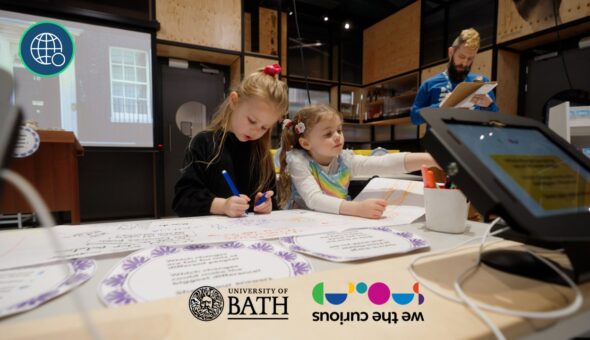A major part of my responsibilities is to increase our research power. Research power and the associated reputational advantage is important at virtually all levels: attracting undergraduate and postgraduate students, early career researchers and established academics, research council funding, in making us attractive research partners in consortia both nationally and globally, in increasing our voice with government, in forming strategic partnerships with international organisations (be they funders, research institutions, industries, government…) and in many other ways. In short, our University will rise or fall based on our ability to grow our research power.
But, it’s hard to do. Research power is clearly associated with both volume and quality. An increase in either of these, as long as it’s not at the expense of the other, would result in an increased research power. Ideally, of course, we would be increasing both. More subtly, it’s also linked to critical mass. Increased volume of our research will be most effective if it is focused in high-quality areas. So what we would like to do is increase the volume of research – the level of activity – in specific areas. Of course, we’ve recruited a lot of outstanding early career researchers as academics over the last few years, partly in response to our increased undergraduate intake. Many – even most – of those new appointments have been directed into strength areas, and will surely increase our power in the years ahead.
There is a genuinely pressing reason to be concerned about our research income. Academic roles very broadly divide into time spent doing research and teaching (and research-related and teaching-related) activities. Funding for the teaching part of the job is clearly identifiable: our time spent teaching is paid for by charging students fees to come to University. Time spent doing research is harder to understand. It used to be the case that quality-related (QR) research funding to institutions was enough to fund the costs of member of academic staff to perform their research. However, QR funding has fallen over the recent past. At the same time, costs have risen, not just because of inflation but because of the need to cover additional support and compliance structure costs, while our academic cohort has increased. As a result, QR funding simply cannot cover the costs (academic staff time and overheads) of performing the volume of research that either our academics or the University would wish. There is a risk of a downward spiral, where staff spend less time doing research and more doing teaching, because there is not enough research funding to cover their costs. This could lead to a poor REF performance, and hence a further reduction in QR research funding. On the other hand, external funding leads to a virtuous circle, where more research funding enables better research (REF) performance, increased QR funding, and less need to rely on teaching to cover academic staff time. Our colleagues who bring in significant funding are acting directly to the benefit of all of our academic staff.
One way in which funding can be found to support research is directly – funding councils, charities and foundations, alumni, governments and companies can all pay research costs if the outputs are aligned with their interests. Another way is for research to benefit less directly from commercial or industrial income: for example, through charging premium consultancy rates, or through research benefitting from industry-funded infrastructure. We’re pursuing these directions through initiatives like the Institute for Mathematical Innovation, and the proposed Institute for Advanced Automotive Propulsion Systems, as well as through longer-standing methods like commercial rates for facilities charge-out. These can all diversify our funding streams and reduce our reliance on our traditional funding sources.
Of course, there are lots of other funding costs which we need to cover. For example, PhD students, postdoctoral researchers and research fellows have always been a vital part of our research base, and they virtually always require external funding in some form. Likewise, travel funding is essential across the research base, if we are to gain full advantage from the research we do, and supporting our junior colleagues and our research students to enable such travel is a responsibility we take on as research leaders. Across a part of our portfolio, laboratory equipment and consumables are an essential part of doing research. But it is a mistake to think that by doing without equipment, travel and PhD students one can do research without funding. We all have to identify ways in which our work can be supported, and to do research that is worthy of support.


